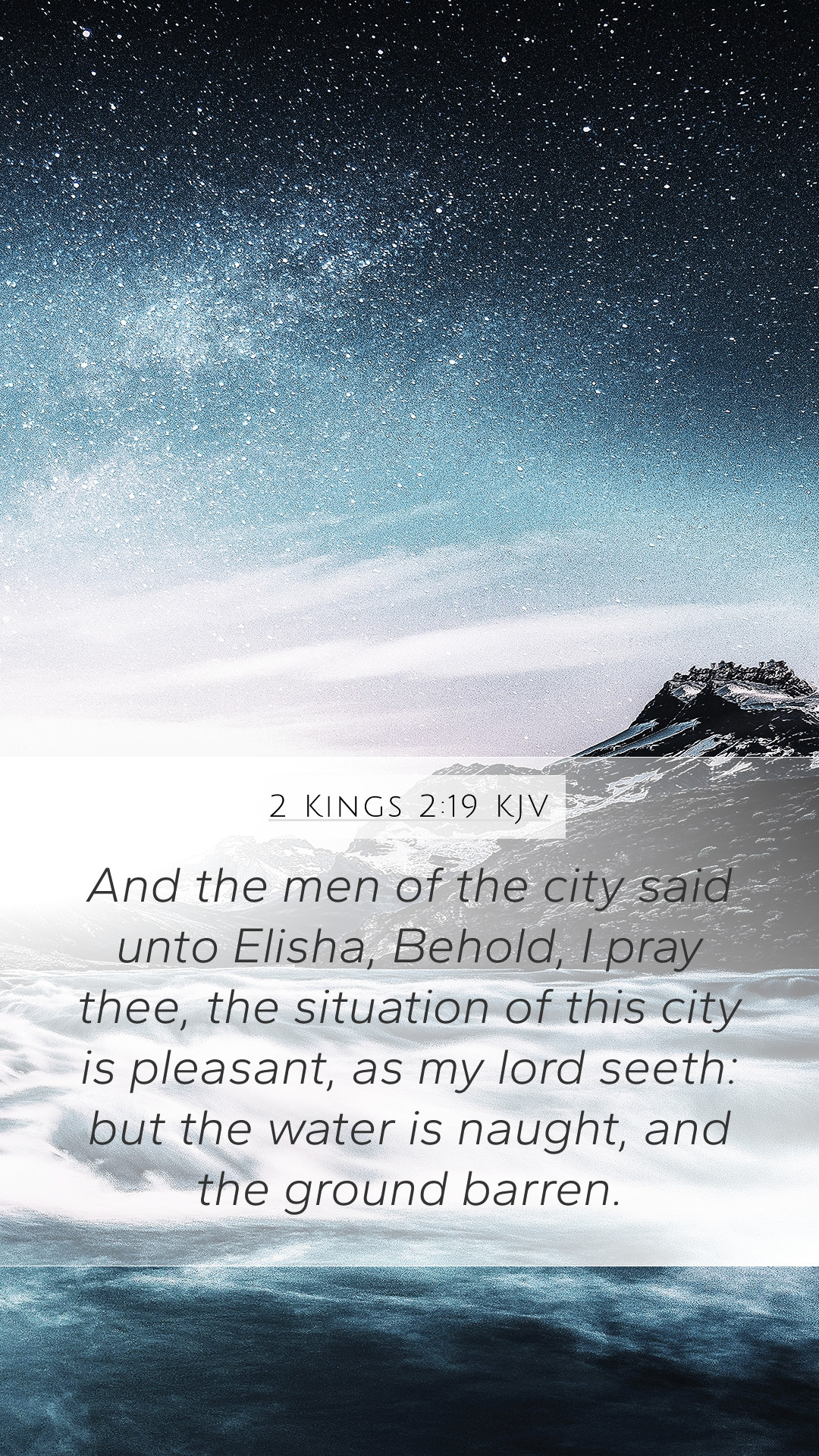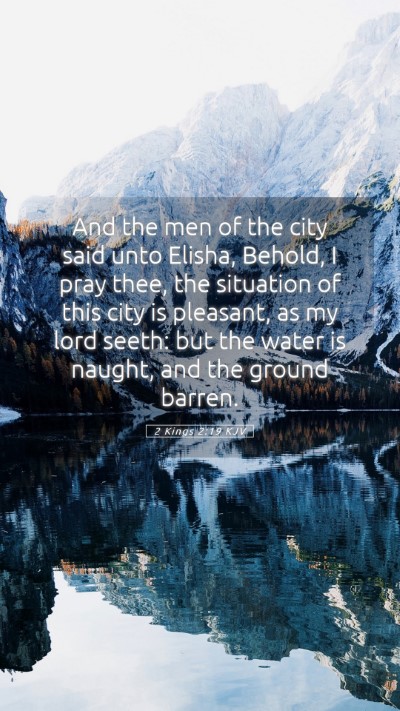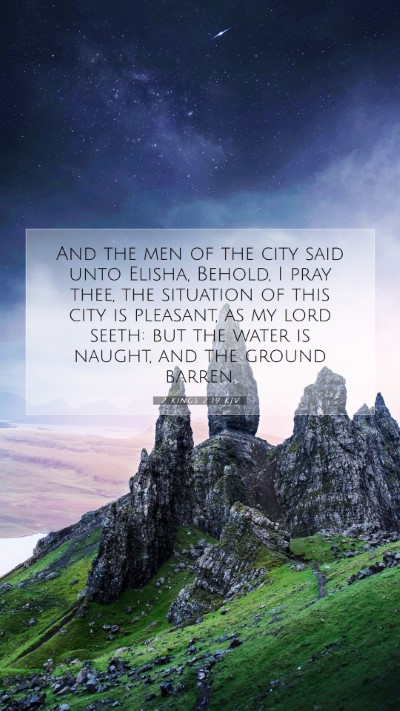Understanding 2 Kings 2:19
The verse 2 Kings 2:19 states:
"And the men of the city said unto Elisha, Behold, I pray thee, the situation of this city is pleasant, as my lord seeth: but the water is not, and the ground barren." (KJV)
Bible Verse Meanings and Interpretations
This verse provides rich insight into the social and spiritual conditions of the city of Jericho, revealing a deep-seated need for divine intervention. The men of the city appeal to the prophet Elisha, acknowledging God's presence while simultaneously expressing their dire need for restoration.
Context and Background
Jericho, known for its natural beauty, was suffering from a lack of wholesome water, rendering the land unfruitful. The plight of the inhabitants highlights the theme of reliance on God's provision. According to commentators like Matthew Henry, this scenario exemplifies the dual nature of God's care: His attentiveness to our physical needs as well as our spiritual health.
Key Themes in the Verse
- The Importance of Water: In biblical times, water symbolized life and sustenance. The lack of it reflects spiritual barrenness.
- The Role of the Prophet: Elisha's involvement emphasizes the significance of prophets as intermediaries between God and His people.
- Community and Collective Needs: The wording indicates a communal approach to seeking help, aligning with the idea that we bear each other's burdens.
Bible Commentary Insights
Matthew Henry's Commentary
Henry emphasizes that the men of Jericho recognized the pleasantness of the city, yet their gratitude was overshadowed by their pressing need for water. He points out that they were aware the city’s beauty was of little value without proper resources to support life.
Albert Barnes' Commentary
Barnes further elaborates that the physical barrenness of the ground served as a potent metaphor for spiritual desolation. He suggests that earthly beauty can mask deeper issues that require divine attention, and the inhabitants understood that their pleasant surroundings had no merit if it could not sustain them.
Adam Clarke's Commentary
Clarke reflects on the inhabitants' approach to Elisha, displaying both faith and desperation. He interprets their plea as an acknowledgment of Elisha’s prophetic authority and a call for God’s intervention to renew both the water and the land, inferring a broader spiritual renewal was necessary.
Application of 2 Kings 2:19
For modern readers, this verse encourages a reflection on personal and communal needs. It teaches the importance of addressing both physical and spiritual desolations in our lives and communities.
In Daily Life
Engaging with this scripture can prompt individuals and Bible study groups to consider how they can seek and provide support within their communities. Acknowledging barrenness in one's life or surroundings can be a first step towards seeking God’s intervention through prayer and active faith.
Related Bible Cross References
- Exodus 15:23-25 - The healing of bitter waters.
- John 4:14 - Jesus as the living water.
- Psalms 46:4 - The river that makes glad the city of God.
Conclusion
2 Kings 2:19 illustrates the dire need for spiritual and physical restoration. The communal plea reflects our collective reliance on God's grace and provision. Through understanding this verse, we gain deeper biblical exegesis that informs both our personal spirituality and our interactions within our communities. It serves as a reminder that beauty without sustenance is but a facade, urging us all to seek the life-giving waters of God's intervention in every area of our lives.


